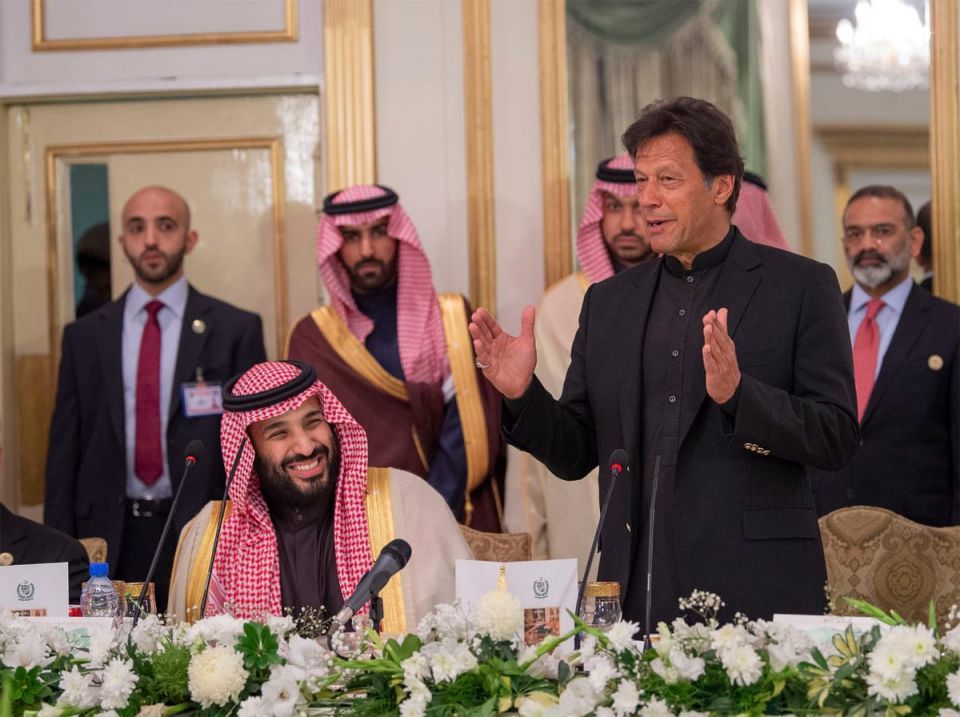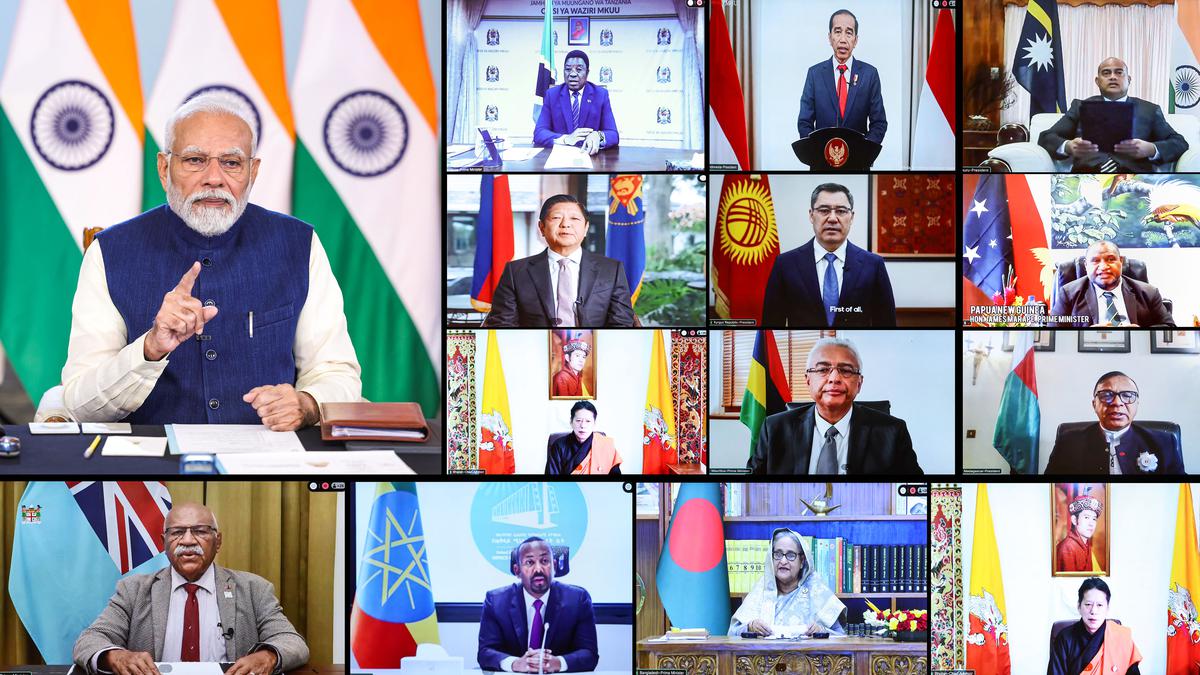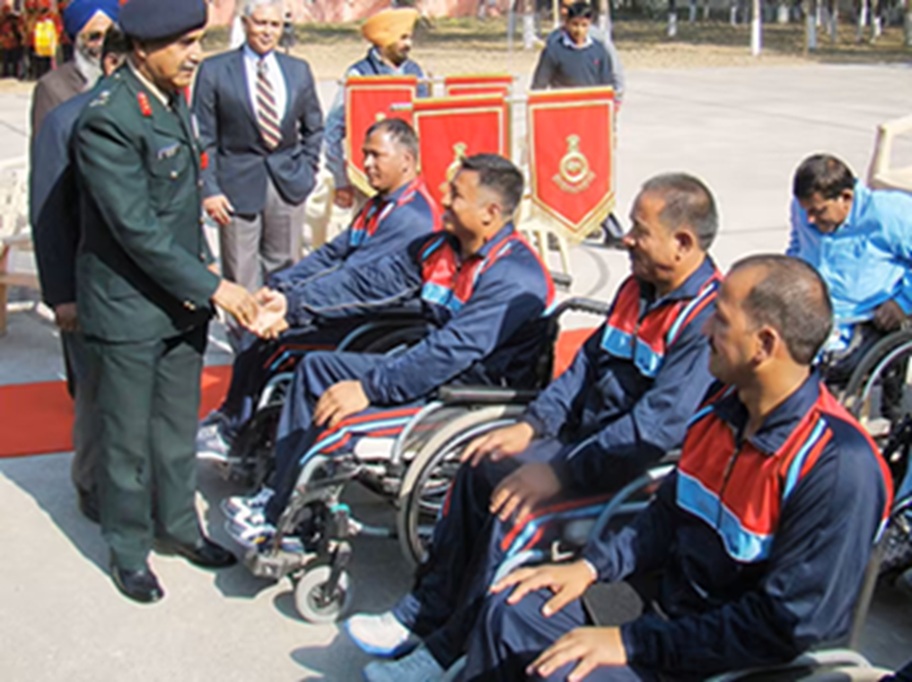Organisation of Islamic Countries (OIC) meddling with the Jammu and Kashmir issue is uncalled-for
A delegation of the OIC Independent Permanent Human Rights Commission, currently (August 2021) on a visit to Islamabad and POK, made uncalled for references to the situation in J and K and not only issued an umpteenth call for resolution of Kashmir dispute as per UNSC mandate but also emphasized on improving the situation in J and K- an integral part of India.
OIC obviously has no ‘locus standi’ in this matter and its resolution clearly signifies meddling in the internal affairs of a sovereign democratic country. This unnecessary meddling by OIC drew a sharp and well-deserved rebuke from India’s Ministry of External Affairs- MEA2,3. It would be appropriate to examine the Pakistan-OIC nexus and repeated meddling by OIC in J and K issue and its impact on India. This article will thus examine the historical background of OIC, its member countries, its nexus with Pakistan, reasons for its constant meddling in the J and K issue, implications for India and some particle suggestions to control the OIC menace.
The Organisation of Islamic Countries (OIC) History and Facts
The organisation of Islamic countries (OIC) or Munaẓamat al-Taʿāwun al-Islāmī in Arabic, was established in Jeddah, Saudi Arabia, in May 1971, as an outcome of the summits by Muslim heads of state and governments in 1969 and by Muslim foreign ministers in 1970. Currently, 57 countries are members of OIC and some notable names include Afghanistan, Algeria, Bahrain, Bangladesh, Benin, Brunei, Burkina Faso, Cameroon, Chad, Comoros, Djibouti, Egypt, Gabon, The Gambia, Guinea, Guinea-Bissau, Indonesia, Iran, Iraq, Jordan, Kuwait, Lebanon, Libya, Malaysia, Maldives, Mali, Mauritania, Morocco, Niger, Oman, Pakistan, the Palestinian Authority (PA), Qatar, Saudi Arabia, Senegal, Sierra Leone, Somalia, Sudan, Syria (suspended as of now), Tunisia, Turkey, Uganda, United Arab Emirates, and Yemen.
The OIC Conferences apparently aim at promoting Islamic solidarity by coordinating social, economic, scientific, and cultural activities and supporting the struggle of Muslims the world over. The OIC agenda pledges to eliminate racial segregation and discrimination including the Palestinians. Its projects include the International Islamic News Agency, the Islamic Development Bank, the Islamic Solidarity Fund, and the World Centre for Islamic Education 4.

OIC’s Interest in J and K
Highly influenced by Pakistan, OIC — a prominent organisation of 57 Islamic countries — has consistently (albeit unnecessarily) commented on the situation in Kashmir, much to India’s chagrin. Historically, OIC has been meddling in the J and K issues, since its inception, although with a varying degree of success. OIC claims that it has the right to comment on and pass resolutions on the situation in J and K, as it’s mandated to intervene in issues that it conceives threaten the wellbeing of Ummah or the brotherhood among Muslims. Many OIC member states, including Saudi Arabia, Turkey, and Pakistan, have a strong Islamic identity; thus several issues that relate to Muslim solidarity find high resonance in OIC’s Islamic Summits and its Islamic Conference of Foreign Ministers (ICFM). OIC- prima facie- shows greater interest in issues affecting the Muslim sentiments in the Arab world. But in reality in South Asia, the Kashmir dispute invariably draws the interest of the OIC, due to Kashmir’s strong linkages with Islam and the region’s proximity to Pakistan – that contests India’s authority over the Muslim majority region5. It’s amusing to see that the countries with dismal records of adherence to human rights, tolerance toward other religions, protecting minorities in their own countries preach to India- a respected democratic country- on the same.
Implications for India
OIC Stand on J and K
It has been observed that India’s decision to revoke the special status of the state of Jammu and Kashmir (J&K) is once again being debated on its second anniversary in many fora. But one of the sharpest and oft-repeated reactions to New Delhi’s move has emanated from the OIC – a dominant groping- to collectively (?) protect the interests of the Muslim world. This constant meddling by OIC in J and K and in turn in internal affairs of India has brought out the acrimonious history of India’s relations with the OIC. It doesn’t need great research to fathom the reason for OIC’s ‘unnecessary’ references to J and K. Pakistan has aggressively pursued the Kashmir issue in all forums, especially in OIC- to isolate India in the Islamic world. Other Islamic states getting influenced by Pakistan and criticising India’s Kashmir policy in the OIC has been India’s bane for a long.
A detailed report related to the 2020 OIC Conference also highlighted other risks for India. The report brought out that the OIC, in its resolution, had urged the international community to evaluate their ties with India and include the people of Kashmir in any peace process talks. OIC also emphasised that the territorial dispute, specifically “granting the right to self-determination to the people of Jammu and Kashmir” has remained unresolved on the agenda of the United Nations Security Council for over seven decades. The member states also decided to hold further talks on the Kashmir dispute in OIC’s foreign minister’s forthcoming (2021) session in Islamabad- which it did, as brought out earlier 6,7.
This perpetual irritant certainly demands a cogent review of India’s relationship with the organisation.
Pakistan’s Vengeance Oriented Activities in OIC
It is undoubtedly that it’s Pakistan that has consistently opposed India’s entry into the Islamic grouping, since OIC’s foundational years. Pakistan fears a prospect that India- with its stature and maturity could influence the opinion of other Muslim states. Despite having the third-largest Muslim population after Indonesia and Pakistan, India’s membership in the OIC has been always contested by Islamabad. It had also launched a scathing attack on New Delhi when Gurbachen Singh, then Indian Ambassador to Morocco, was sent as the representative to the First Islamic Summit in Rabat in 1969. Pakistan also keeps insisting that India should send only a Muslim delegation that would apprise the OIC of issues concerning the community there, for the OIC conference- surely an unfair demand. OIC’s dealings with India have fluctuated under Pakistan’s tantrums in a low-high-low manner, bringing an element of unpredictability into it and to date India remains only a ‘prospective’ member of the OIC, affecting India on various fronts.
Turkey
Turkey is another nation that supports Pakistan on the Kashmir issue. On several occasions, Erdogan has offered to mediate differences between India and Pakistan towards the resolution of the Kashmir dispute raising concerns in New Delhi. Apart from Turkey, Azerbaijan offers strong support to Pakistan on the Kashmir issue owing to Pakistan’s quid-pro-quo support to the Azeri’s position against Armenia. Voices from Iran have also expressed resentment against India’s Kashmir’s policy asking New Delhi to respect the rights of the Kashmiri people. Thus much is at stake for India in relation to OIC members.
India’s Response and Suggestions
In Relation to OIC
India has consistently opposed OIC’s meddling in the J and K issues. It has always asked OIC to refrain from intruding in the internal affairs of a sovereign democratic country. Facing a diplomatic offensive from the OIC, India has consistently questioned the organisation’s locus standi to intervene in the Kashmir affairs. Moreover, India has asserted that the organisation has been misguided by Pakistan that has sought to leverage its status in the OIC to serve its selfish interests. Despite this, India has not been able to gain tangible traction in OIC, thereby putting much at stake for India. The time has now come for India to carry out a pragmatic review of its relationship with OIC and initiate measures to strengthen its position in OIC, to safeguard its own national interests. This has become all the more important in view of the precarious security situation on India’s own borders (both China and Pakistan) and Afghanistan.
India also must show a mirror to OIC pointing out that while OIC has been consistently meddling in the Kashmir issue (India’s internal matter) in its summits and conferences, it has only superficially addressed issues faced by the Muslim population in China’s restive Xinjiang province.
In Relation to OIC Members and other Countries
India also needs to review and encash on its bilateral relationship with OIC member countries and move in a fashion to benefit from the fault lines within the Islamic world, in defending its position. While Turkey will continue to support Pakistan’s viewpoint on the Kashmir dispute (because of its own ambitions of reviving the old Ottoman Empire), India must strengthen its multifaceted engagement with the UAE to counter Pakistan’s influence in the OIC., for example, UAE honoured its commitment to host India’s then external affairs minister, Late Ms Sushama Swaraj, as the guest of honour for the 46th ICFM meeting in Abu Dhabi, despite Pakistan tantrums to withdraw. UAE has also signalled its support for India’s decision to revoke Article 370, stating that the legislative move could improve the prevailing social and security situation in J&K. India also needs to nurture its relationship with Bangladesh which had (in 2018) advocated for reforms in OIC that would allow states like India, who have significant Muslim population, to become a member of the organisation. Outside of the OIC, India needs to develop its relationships with Cyprus and Armenia that share volatile relations with Turkey and Azerbaijan respectively.
Further, India needs to balance its relationships with Libya and Iraq- countries that were more unequivocal in their support to India’s position on Kashmir, often treating Kashmir as India’s ‘internal matter.’ Since the days of the Hafez-Al-Assad regime in Syria, Damascus has also ascribed to India’s position on the Kashmir issue. Other important Arab member states such as Egypt have held a more balanced view while commenting on the Kashmir dispute. Thus India should undertake a SWOT analysis of its relationships with the OIC member countries and act in a manner that would be most beneficial to India 5a.
It is hoped that dynamic review and appropriate course corrections by India in maintaining its relationship with OIC as well as its member countries would help India in exorcising OIC’s Kashmir meddling ghost in the not too distant future.
Conclusion
The Kashmir issue has undoubtedly attracted attention at many multilateral forums, especially the OIC, where it has become an obsession for Pakistan to slam India and turn the Islamic world against India. Unduly Influenced by Pakistan, OIC- a prominent organisation of 57 Islamic countries — has consistently meddled in Kashmir issues (without any locus standi) much to the disappointment of India. Despite its consistent efforts, India has not been able to gain much traction in OIC which puts much at stake for India in the Muslim world.
Despite Kashmir’s regional proximity to several OIC member states, there is not much consistency in OIC’s and its member countries’ stand on the issue of Kashmir. While some members such as Turkey and Pakistan, driven by their so-called ideological and ideational commitments, but in reality, clear selfish motives have developed a closer understanding of the issue. However, many other member states such as UAE and Egypt value their relationship with India and understanding the strategic, economic imperatives display visible restraint while engaging on the issue. India has to recognise such fault lines and act in a manner to benefit from them. These two countries need to be squarely brought into India’s camp.
However, despite the differing views within the OIC, given the dynamics of the issue and interests of the Muslim world, the Kashmir issue is likely to remain part of the OIC’s focus (courtesy of Pakistan, Turkey and Malaysia) demanding an informed and well-calibrated approach from India. With dynamic EAM like Hon. Dr S Jayashankar at the helm, it should not be an insurmountable task for India.
Jai Hind.
Disclaimer: The views and opinions expressed by the author do not necessarily reflect the views of the Government of India and Defence Research and Studies
References:
- Title Image-https://en.wikipedia.org/wiki/Organisation_of_Islamic_Cooperation
- Special Correspondent (Mar 03 2019), India rejects OIC resolution on “Indian terrorism” in Kashmir, The Hindu, On Line, Retrieved From: https://www.thehindu.com/news/national/india-rejects-oic-resolution-on-indian-terrorism-in-kashmir/article26421044.ece, Accessed on 06 Aug 2021
- and India News Box (August 06 2021), “Unacceptable”: India Slams Islamic Nations’ Group For J&K Remarks, India News Box, On Line, Retrieved From: https://www.indiannewsbox.com/unacceptable-india-slams-islamic-nations-group-for-jk-remarks/, Accessed on 06 Aug 2021
- Britannica, T. Editors of Encyclopaedia (April 23, 2020). Organization of the Islamic Cooperation. Encyclopaedia Britannica, On Line, Retrieved from: https://www.britannica.com/topic/Organization-of-the-Islamic-Cooperation, Accessed on 06 Aug 2021
- (and 5a) Mehta Ketan (October 14, 2019), OIC and its views on Kashmir: India’s Achilles heel in the Islamic world?, ORFonline, Retrieved From: https://www.orfonline.org/expert-speak/oic-views-kashmir-india-achilles-heel-islamic-world-56584/, Accessed on 06 Aug 2021
- Report on 47TH SESSION OF THE COUNCIL OF FOREIGN MINISTERS ( November 27-28 2020), RESOLUTIONS ON POLITICAL AFFAIRS ADOPTED BY THE 47 TH SESSION OF THE COUNCIL OF FOREIGN MINISTERS (Session of United against Terrorism for Peace and Development), OIC, On Line, Retrieved From https://www.oic-oci.org/docdown/?docID=6626&refID=3255, Accessed on 07 Aug 2021
- Khan Iftikhar A (November 29, 2020), OIC asks India to rescind illegal acts in occupied Kashmir, The Dawn, On Line, Retrieved From: https://www.dawn.com/news/1592994, Accessed on 06-07 Aug 2021





